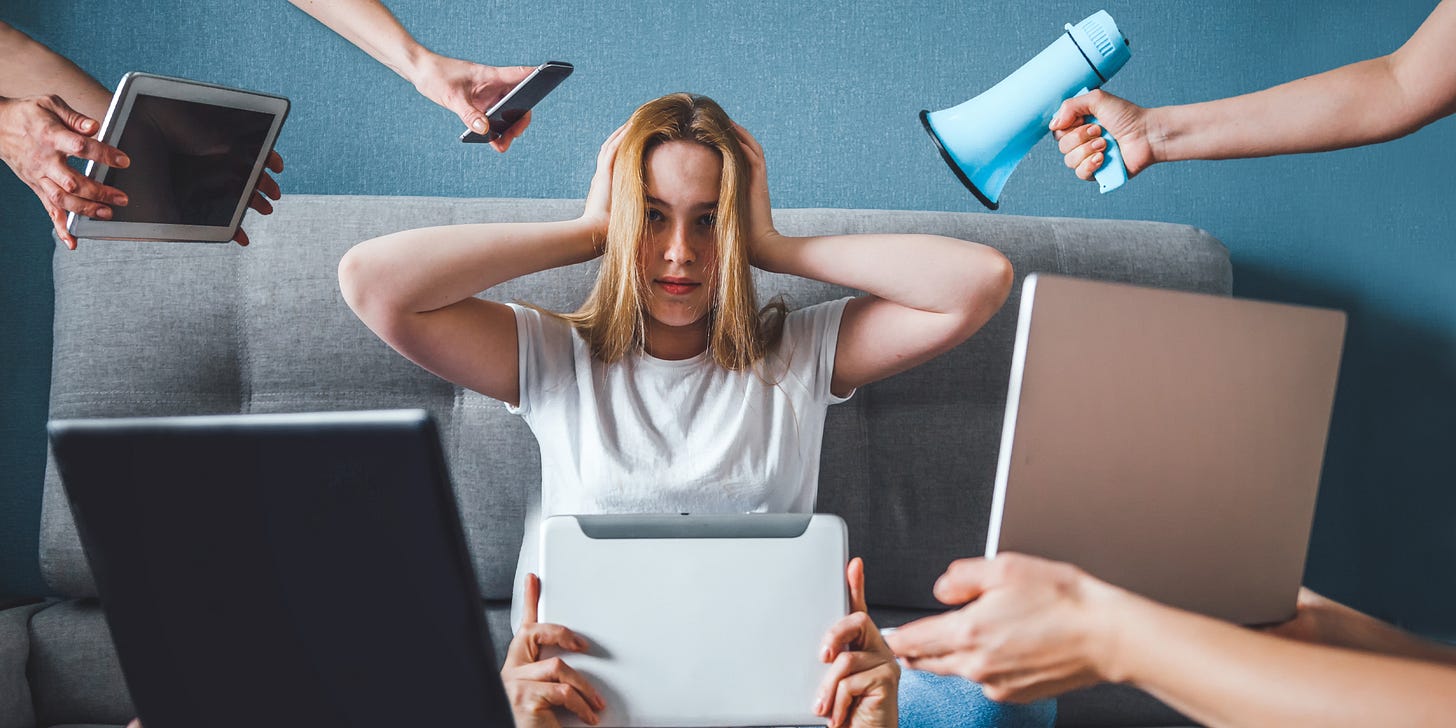Can we get rid of plastic?
Electric cargo ships, fossil fuel disinformation, and getting rid of plastic
I love it when something I talked about here recently ago turns up in the news, and this week is no exception. On schools, a new study shows that green spaces on school campuses are good for kids, the planet, and the bottom line. For every dollar invested in creating a green schoolyard in Denver, the study found, schools reaped a $3 return. This is great news to share with your local school!
GOOD NEWS
Shipping is currently responsible for 3 percent of global emissions annually. This number could easily triple by 2050 if nothing is done to curb emissions - but it is.
COSCO Shipping, a Chinese state-owned carrier that is the second-largest shipping company on the planet, has launched a 10,000-ton, fully electric cargo ship called the Green Water 01. The 393-foot electric container ship is powered by a 50 MWh battery, that can even be expanded to 80 MWh if needed. That’s the equivalent of nearly a thousand EV car batteries. The ship is currently sailing weekly on the Yangtze River between Shanghai and Nanjing.
While the Green Water 01 is the largest electric cargo ship, it is not the only one. The world's first electric self-propelled container ship, the Norwegian-flagged Yara Birkeland, made her maiden voyage back in 2021. The 260-foot Yara Birkeland is powered by a 6.8 MWh battery bank and transports fertilizer between a plant and a Norwegian port, replacing around 40,000 trips by diesel-powered trucks each year and reducing emissions by some 1,000 tons of CO2. For more about the Yara Birkeland, watch this video.
NOT-SO-GOOD NEWS
Fossil fuel companies aren't just spewing carbon pollution. They're also continuing to push out toxic mis- and disinformation to slow the green energy transition, the Guardian reported.
“There is this prevailing narrative – and a lot of it is being pushed by the fossil fuel industry and their enablers – that climate action is too difficult, it’s too expensive,” said Selwin Hart, the assistant secretary general of the UN. “It is absolutely critical that leaders, and all of us, push back and explain to people the value of climate action, but also the consequences of climate inaction.”
Hart noted that the UN Development Programme conducted the largest ever climate poll earlier this year, finding that 72 percent of people worldwide want to see a "quick transition" to sources of green energy. Hart called on leaders to heed these concerns. “Climate appears to be dropping down the list of priorities of leaders,” Hart said. “But we really need leaders now to deliver maximum ambition. And we need maximum cooperation.”
WHAT YOU CAN DO
Last week, I wrote about how recycling aluminum and cardboard can be very effective. Around the world, though, less than 10% of plastic is actually recycled. So when it comes to plastic, the best thing we can do is not use it in the first place.
Getting rid of it is a big challenge, though, and that’s why we need global initiatives like the Global Plastics Treaty to end plastic pollution. In November, negotiators will meet in South Korea to finalize the treaty, but there’s still plenty of arguments from nations who don’t want to cut back on plastic production. As Beyond Petrochemicals director Heather McTeer Toney talked about back in December when she guest-edited this newsletter, long-standing and toxic ties between the fossil fuel industry, plastic pollution, and inequity are fueling this fight.
In the meantime, we can get a head start on a plastic-free future by taking steps to cut it out of our lives. Reusable water bottles, refillable containers, bar shampoo, plastic-free dishwasher soap & laundry detergent that are easy to find, and great to use. If you live in a city, more and more package-free, zero-waste shops are popping up that allow you to refill your grocery and household staples using your own containers.
But don’t forget the power of your voice. Reach out to your local representatives or your favourite providers and ask them what they can do to get rid of plastic. When we work together, we can accomplish so much.
For example, a new U.S. study finds that plastic bag bans in New Jersey, Vermont, as well as Portland, OR, Santa Barbara, CA, and 18 cities in Pennsylvania have "reduced the number of single-use plastic bags used each year by around 6 billion.” That’s incredible!
Organizations and cities can require plastic free take-out packaging for food. Schools are organizing plastic-free lunch days. There's lists for catering organizations of alternative products that don't use plastic.
What do all these initiatives have in common? They all began with one person saying, “Why don’t we do this?” Next time, that person could be you!





I’ve always thought that the responsibility for global plastic pollution is mistakenly placed on the consumer. No one asked for their corn to come in a styrofoam and plastic wrapper, when it naturally comes in its own biodegradable wrapper. The responsibility for plastic proliferation and pollution should fall squarely on the shoulders of the corporations that produce and distribute it, in the form of a hefty tax penalty that can be avoided by using biodegradable alternatives instead.
Another terrific post. Thanks for the reminder that we CAN stop using plastics and make a difference. Passing this essay onto friends in my one-time hometown, Santa Barbara. It's good to be reminded your efforts are making a difference. Helps spur on desire for more change. Thanks, Katharine.